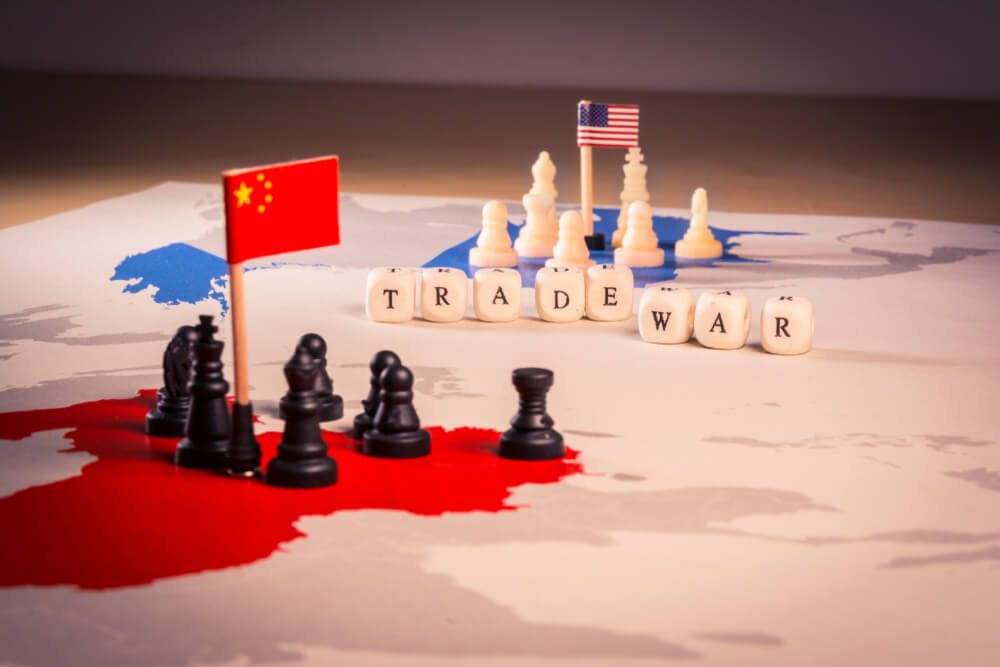The U.S.-China trade blowup was a long time coming.
“The United States has legitimate grounds to be upset with the Chinese.”
And it won’t be easily resolved, not even if U.S. and Chinese negotiators reach a truce in the next few weeks that reassures jittery financial markets.
Tensions between the world’s two biggest economies intensified over the last week. The Trump administration more than doubled tariffs on $200 billion in Chinese imports and spelled out plans to target the $300 billion worth that aren’t already facing 25% taxes. The escalation covers everything from sneakers to toasters to billiard balls.
The Chinese have punched back by upping tariffs on $60 billion in U.S. imports.
Eleven rounds of negotiations have failed to settle a dispute over Beijing’s aggressive push to challenge U.S. technological dominance — a campaign, the U.S. alleges, that includes stealing technology and forcing foreign companies to hand over trade secrets.
“The United States has legitimate grounds to be upset with the Chinese,” said Mark Zandi, chief economist at Moody’s Analytics. “This has been building for almost 20 years.”
It wasn’t supposed to be this way. When China joined the World Trade Organization in 2001, optimists expected China to open its economy. And maybe the Chinese Communist Party would allow more political freedom as the country increased contact with the world’s industrialized democracies.
But the results have been disappointing.
China has used its WTO membership to flood other countries with exports, while limiting foreign access to its own market. “Their vision is in a lot of ways zero sum,” said Blaine Johnson, a policy analyst who specializes in Asia at the liberal Center for American Progress.
The result is a badly lopsided trading relationship: The U.S. trade deficit with China last year hit a record $379 billion.
“China has effectively used the multilateral trading system to its own advantage, enjoying the benefits of those rules of engagement while not always following those rules in spirit,” said Eswar Prasad, a Cornell University economist and former head of the China division at the International Monetary Fund.
Critics now say the Geneva-based WTO, which sets trade rules and mediates disputes, was ill-equipped to handle China’s unorthodox blend of capitalism and state control. In the Chinese system, it is tough to tell whether a company is seeking profits in the conventional way or is acting with the support and on behalf of the government to achieve China’s strategic goals. The U.S., for example, says that the telecommunications equipment supplied by China’s Huawei can be used to spy on foreign countries.
“China’s economy is fundamentally different— even unique,” Mark Wu of Harvard Law School wrote in an influential 2016 paper. “The WTO rules, as written, are not fully equipped to handle the range of economic problems associated with China’s rise.”
Frictions have increased since Xi Jinping became the Chinese leader in 2012. Beijing in 2015 unveiled an ambitious program, Made in China 2025, to turn Chinese companies into world leaders in advanced fields like robotics and artificial intelligence.
But the U.S. says China is trying to meet its aspirations by stealing trade secrets, coercing technology transfers, subsidizing its own firms and burying in red tape foreign companies that want to compete in the Chinese market. Last year, the U.S. began imposing tariffs to pressure China to drop the aggressive tactics.
Talks to resolve the dispute have foundered in part on America’s insistence that any deal contain provisions that will force China to keep its commitments.
“China is unlikely to give in to the American demands,” economist Sung Won Sohn of Loyola Marymount University wrote this week. “To China, it is more than a trade issue: they see America bullying a new emerging economic and military rival. It reminds China of the humiliation the country suffered in the 19th century when the western powers imposed unfair treaties on China.”
Still, many analysts expect the two countries to find a way back from the brink — at least in the near term. Each has an incentive to end the dispute. The Chinese economy is decelerating, and the trade war with the United States is worrying China’s consumers and businesses. In the United States, the dispute jeopardizes a stock market rally that President Donald Trump touts as a vote of confidence in his economic stewardship.
The two countries are expected to resume talks that broke off Friday but haven’t scheduled anything yet. Trump has said that he expects to meet Xi in late June at the G-20 summit in Osaka, Japan.
Cheng Li, director of the China Center at the Brookings Institution, admits there’s no way the U.S. and China can resolve all the issues that divide them. But he says continued economic cooperation between the two countries is vital: It gives them common interests and helps prevent their rivalry from escalating into political and perhaps even military conflict.
“Despite all the tensions, no American soldier has died in (East Asia) since the Vietnam War,” Li said. “That’s a great achievement.”
So, can the U.S. and China end the current dispute and continue their uneasy economic relationship? “We can and we must,” Li said. “The stakes are so high.”
© The Associated Press. All rights reserved.
